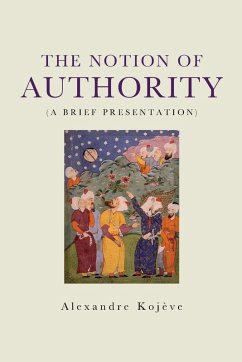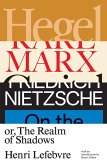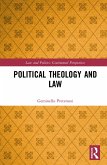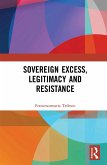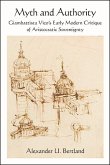In The Notion of Authority, written in the 1940s in Nazi-occupied France, Alexandre Koj¿ve uncovers the conceptual premises of four primary models of authority, examining the practical application of their derivative variations from the Enlightenment to Vichy France.
This foundational text, translated here into English for the first time, is the missing piece in any discussion of sovereignty and political authority, worthy of a place alongside the work of Weber, Arendt, Schmitt, Agamben or Dum¿zil.
The Notion of Authority is a short and sophisticated introduction to Koj¿ve's philosophy of right. It captures its author's intellectual interests at a time when he was retiring from the career of a professional philosopher and was about to become one of the pioneers of the Common Market and the idea of the European Union.
This foundational text, translated here into English for the first time, is the missing piece in any discussion of sovereignty and political authority, worthy of a place alongside the work of Weber, Arendt, Schmitt, Agamben or Dum¿zil.
The Notion of Authority is a short and sophisticated introduction to Koj¿ve's philosophy of right. It captures its author's intellectual interests at a time when he was retiring from the career of a professional philosopher and was about to become one of the pioneers of the Common Market and the idea of the European Union.
Dieser Download kann aus rechtlichen Gründen nur mit Rechnungsadresse in A, D ausgeliefert werden.

